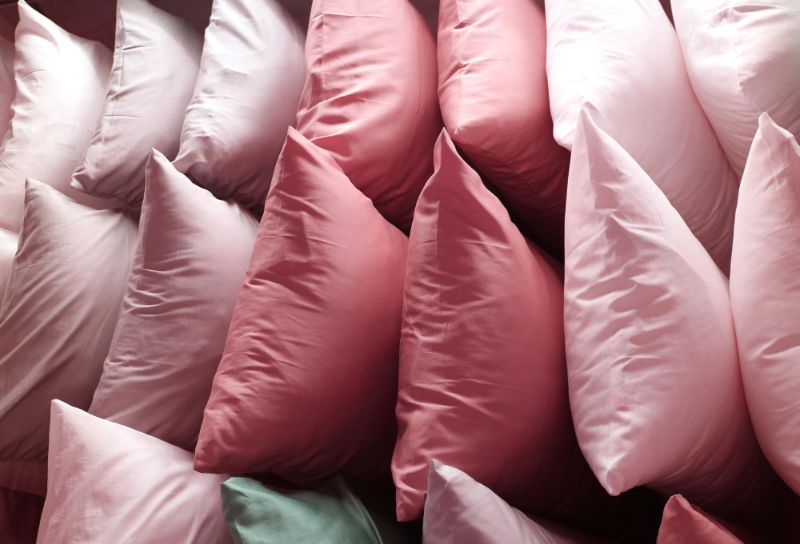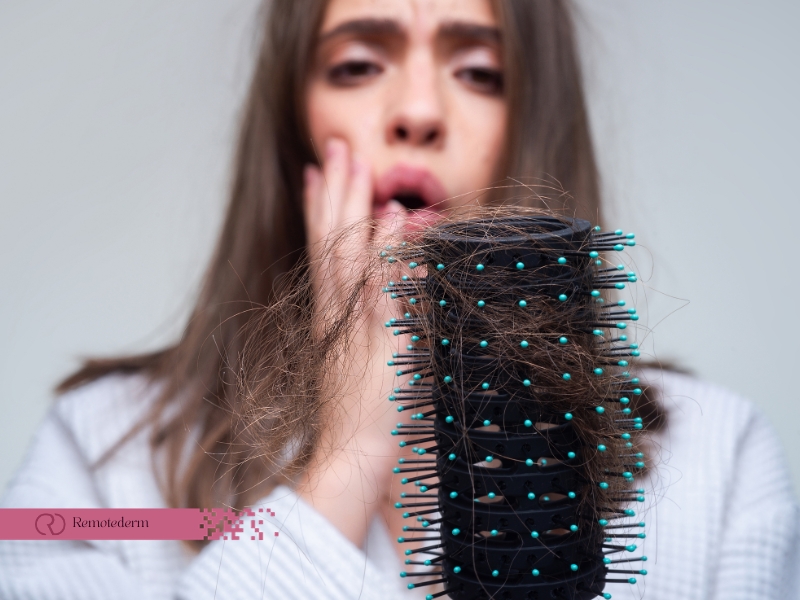Dealing with hair loss in winter can be a real concern for many people as the temperature drops and the days grow shorter. While we all look forward to cozy winter nights by the fire and enjoying our favorite hot beverages, winter also brings its fair share of challenges. In this comprehensive guide, we will explore the causes of hair loss in winter, effective prevention strategies, and essential hair care tips to maintain luscious locks throughout the colder months.
Understanding Hair Loss in Winter
Do You Lose More Hair in the Winter? It might seem counterintuitive, but some people do experience increased hair loss during the winter months. However, distinguishing between normal shedding and excessive hair loss is essential. On average, people lose 50 to 100 hairs a day, and this is perfectly normal. In winter, it can appear as though you are losing more hair because your hair follicles may synchronize their growth cycles, leading to more hair entering the shedding phase simultaneously.
Causes of Hair Loss in Winter
The arrival of winter brings with it a number of factors that can contribute to hair loss, and understanding these causes is critical for keeping healthy hair during the winter season. Let’s take a closer look at each of these components:
- Dry Scalp: As winter sets in, the drop in humidity levels can have a significant impact on your scalp. The result? Dryness and flakiness can weaken hair follicles and ultimately contribute to hair loss. It’s crucial to keep your scalp well-hydrated and nourished during this season to counteract this effect.
- Hat Hair: To combat the chilly weather, many of us sport stylish hats and cosy beanies. While they keep us warm, they can also cause friction with our hair. This friction can lead to breakage and hair loss over time, especially if you’re frequently putting on and removing hats. Using a silk or satin lining for your headwear can help reduce this friction.

- Nutritional Deficiencies: The holiday season often tempts us with indulgent treats and less-than-healthy dietary choices. These choices can result in vitamin and mineral deficiencies that directly impact the health of your hair. For example, a lack of essential nutrients like biotin, zinc, and iron can lead to weakened and thinning hair. To counteract this, maintain a balanced diet rich in these vital nutrients, and consider supplements if necessary.
- Stress: Elevated stress levels can lead to a condition known as telogen effluvium, where hair enters a resting phase and subsequently sheds. Finding effective stress-management techniques can help mitigate this potential cause of hair loss.
- Hot Showers: In the midst of winter’s chill, hot showers can be incredibly comforting. However, the high water temperature can strip your hair of its natural oils, leaving it dry, brittle, and prone to breakage. Consider turning down the temperature of your showers and using a moisturizing shampoo and conditioner to help combat this issue.
- Lack of Sun Exposure: Reduced sunlight exposure during the winter can result in lower levels of vitamin D production in your body. Vitamin D is known to be important in promoting healthy hair growth. To counteract this, make sure you’re getting enough vitamin D through diet or supplements. Spend some time outside when the sun shines, even on cold days, to improve your overall well-being, including the health of your hair.
How to Stop Hair Fall in Winter
Understanding the causes of hair loss in winter is just the first step. Now, let’s delve into effective strategies and practices to safeguard your precious locks from seasonal hair fall:
- Keep Your Scalp Moisturized: Combat the dryness that often accompanies winter by using a hydrating shampoo and conditioner specifically designed to nourish your scalp. Additionally, consider incorporating a scalp oil massage into your routine.
- Maintain a Balanced Diet: A diet rich in essential nutrients is your hair’s best friend. Make sure your meals include foods high in biotin, vitamin D, and omega-3 fatty acids. These nutrients are fundamental for hair health and can significantly reduce the risk of hairfall in winter.

- Protect Your Hair: If you use hot styling tools on your hair, always use heat protectants before styling. Excessive heat styling can weaken your hair and make it more susceptible to damage. Whenever possible, let your hair air dry to minimize heat exposure.
- Trim Regularly: Don’t forget to schedule regular trims with your hairstylist. Trimming removes split ends, preventing them from travelling up the hair shaft and causing further damage. This practice promotes healthier and more resilient hair.
By incorporating these practices into your winter hair care routine, you can effectively minimize the risk of hair loss and enjoy luscious, vibrant hair throughout the season.
Hair Care Tips for Winter
In addition to preventing hair loss, it’s essential to maintain a healthy hair care routine during winter:
- Use a Humidifier: Combat the dry indoor air by incorporating a humidifier into your home. This helps maintain an optimal level of moisture, keeping your hair hydrated and less prone to dryness.
- Gentle Shampooing: Avoid excessive washing of your hair during winter, as it can strip away natural oils. Opt for a mild, sulfate-free shampoo to cleanse your hair without over-drying it.
- Deep Conditioning: Pamper your hair with a deep conditioner or hair mask at least once a week. This rejuvenating treatment restores much-needed moisture and imparts a healthy shine to your locks.
- Avoid Tight Hairstyles: Be gentle with your hair by avoiding tight hairstyles that can cause stress on your hair and scalp. To reduce tension, choose loose braids or ponytails.
- Silk Pillowcases: Swap your regular pillowcases for silk ones. Sleeping on silk reduces friction, preventing hair breakage and maintaining your hairstyle for longer.

- Protect Your Hair from the Elements: When venturing outdoors, shield your hair from the harsh winter elements. Use a scarf or hat to cover your locks, offering protection against the cold, wind, and dry air.
- Consult a Dermatologist: If you notice persistent and excessive hair loss that doesn’t improve with these tips, it’s crucial to seek professional guidance. Consult a hair loss dermatologist who can provide a thorough evaluation and recommend appropriate treatments to address any underlying issues.
Final Thoughts
Winter’s chill may bring about unique challenges for your hair, but armed with knowledge and the right care routine, you can keep your hair looking its best even in the coldest months. Remember that a certain amount of hair shedding during winter is normal, so don’t be overly alarmed. Instead, focus on the holistic approach we’ve outlined in this comprehensive guide.
From understanding the causes of hair loss in winter to implementing effective preventive strategies, you have the tools to maintain healthy and vibrant hair. Hydrate your scalp, nourish your body with a balanced diet, and protect your hair from harsh elements. Incorporate deep conditioning, gentle shampooing, and stress-reduction techniques into your routine. Embrace silk pillowcases, avoid tight hairstyles, and consult a dermatologist if needed. With these tips and practices in mind, you can not only prevent hair loss but also enjoy the beauty of luscious locks throughout the colder months. So, embrace the winter wonderland with confidence, knowing that your hair is ready to shine, no matter the season.
FAQs
- Are there any specific hair care products I should use in winter?
Using hydrating shampoos, deep conditioners, and heat protectants for styling can help maintain hair health during the winter months.
- What’s the best way to protect hair from harsh winter elements?
Using scarves or hats when going outside can shield your hair from cold, wind, and dry air, reducing the risk of damage.
- Should I change my hair care routine in the winter compared to other seasons?
Yes, it’s beneficial to adjust your hair care routine by incorporating more hydrating and protective measures during the winter months.
- When should I consult a dermatologist about my hair loss in winter?
If you notice persistent and excessive hair loss that doesn’t improve with home care, it’s advisable to consult a dermatologist for a professional evaluation and guidance.
